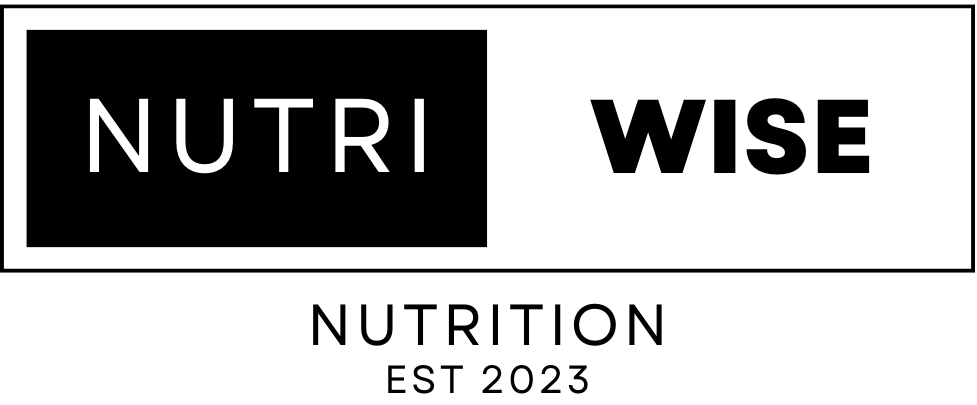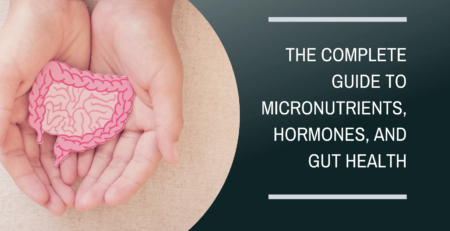The Best Diet For Strength
Are you looking to build strength and increase muscle mass? Eating the right foods can have a dramatic impact on your fitness goals. But with so many diets out there, it’s difficult to know which one is best for building strength. In this article, we’ll discuss what the ideal diet looks like if you’re looking to become stronger and bulk up.
The key to gaining strength lies in understanding the relationship between using weight training as a stimulus and eating enough of the right types of food. A balanced diet that includes plenty of proteins, complex carbohydrates, healthy fats, vitamins and minerals is essential for success. I will always tell my clients that specific goals require specific plans, so in addition to just eating the right foods in the correct amounts, timing your meals correctly will help ensure your body has all the energy it needs when working out or competing in sports.
By understanding how nutrition affects performance, you can make changes to your diet that will lead to improved strength and power. Keep reading to find out more about the best diet for strength-building!
1. What Is Strength Training?
Strength training is like a puzzle; its pieces must be carefully assembled to get the best results. It is an exercise regimen designed to build muscular strength, endurance and power. Strength training involves working out with weights, resistance bands, or even one’s own body weight for increased muscle mass and size.
The main purpose of strength training is to increase lean muscle mass as well as joint stability and mobility. This helps to improve overall fitness levels and reduce the risk of injury from physical activities such as running or playing sports. Additionally, it can help improve posture and decrease back pain that comes with aging.
In order to maximize the benefits of strength training, it should be done correctly and consistently. Proper form needs to be maintained while lifting weights in order to avoid potential injuries associated with improper use of equipment or incorrect technique. A good program should also incorporate adequate rest between workouts so muscles have time to recover before being taxed again during another session. To ensure optimal results over time, consistency with progressive overload is key: regular exercise and increasing weight (amongst other variables) will yield better outcomes than sporadic bouts of activity here and there.
2. What Nutrients Are Necessary For Strength Training?
Strength training requires the right combination of nutrients to properly fuel and recover your body. Protein is a key nutrient for strength training as it helps build muscle mass, boost metabolism, and enhance satiety. Complex carbohydrates are also important for providing energy during workouts and replenishing glycogen stores afterwards. Healthy fats aid in joint health and mobility as well as hormone production and formation of new cells. Vitamins and minerals help to support overall good health while preventing deficiencies that could lead to fatigue.
In addition to these macronutrients, hydration plays an essential role in performance when weightlifting or doing any kind of intense exercise. Water is needed to transport oxygen through the bloodstream, regulate temperature, lubricate joints, eliminate waste products from exertion such as lactic acid buildup, and reduce inflammation caused by micro-tears in muscles after lifting weights. Electrolytes like sodium and potassium must be replaced if lost due to sweat so that your cells continue functioning optimally during physical activity.
To stay energized and perform at your best when participating in strength training activities, make sure you’re getting enough of all the necessary macro-and micronutrients – including protein, complex carbs, healthy fats, vitamins & minerals – plus plenty of water with electrolytes for proper hydration levels!
3. How To Create The Optimal Diet For Strength
Studies show that many people don’t get enough of the recommended daily amount of protein. This means many aren’t getting the key nutrients necessary to build strength and muscle.
When it comes to creating an optimal diet for strength training, there are certain foods and drinks you should focus on including in your meals. Protein is important as it helps repair muscles after a workout, so incorporating lean meats, eggs, fish and other proteins such as dairy can help with building strength. Eating complex carbohydrates such as whole wheat breads and pasta provide slow release energy for workouts and white versions of the same provide a quick burst of energy requiring less digestion to unlock; similarly, healthy fats from sources like nuts, avocados and olive oil ensure body functions stay in check while also providing more energy when needed. Finally, staying hydrated before, during and after exercise with plenty of water will keep your body functioning at its best.
You also need to know how much to eat. Whilst it’s possible to gain strength in a calorie deficit, it’s not optimal. Many powerlifters diet prior to competing to make weight and still manage to hit new PR’s in the prep block. It’s not optimal though. You should be consuming your maintenance calories or be in a slight surplus to create the most optimal conditions for strength gains.
| Calorie Structure | Consensus |
|---|---|
| Hard deficit for weight loss or body composition improvement | Still possible, not ideal, potentially will lose strength with every kilo of weight lost |
| Slight deficit (up to 10%) | Possible, not sustainable |
| Maintenance | Ideal, sustainable |
| Slight surplus (up to 10%) | Ideal, optimal, may gain minimal body fat |
| Large surplus (up to 30%) | Still works, not optimal, likely to gain a lot of excess body fat |
These factors can make a big difference in maintaining a balanced diet that supports both general health and increased strength levels. Making sure each meal has the right balance between carbs, fat and protein in line with your calorie needs ensures that your body gets all the nutrients required to perform at its peak level – helping you reach those strength goals quicker!
4. The Benefits Of A Strength Training Diet
Powerful nutrition powers peak performance. While a good diet is essential for any exercise routine, strength training requires a little extra effort to maximize gains and optimize outcomes. Crafting the perfect diet plan can help ensure success on this journey.
When it comes to strength training diets, there are several benefits that you receive. For starters, it’s important to note that these diets often provide more protein than other eating plans – this macronutrient helps build muscle and repair tissue after workouts. Higher protein diets commonly help in body composition improvements. Additionally, strength-focused diets include complex carbohydrates which supply energy throughout the day. As you’ll be eating more you’re also likely to have plenty of energy to fuel your days activities and maintain mental clarity. Moreover, healthy fats offer insulation for muscles and organs as well as providing fuel during rest periods between sets.
In addition to supplying adequate nutrients for strength building, these specialized meal plans also reduce inflammation levels in the body due to their anti-inflammatory properties. This in turn leads to improved overall health while promoting recovery from training sessions by reducing muscle soreness. Furthermore, when combined with proper hydration practices such as drinking plenty of water and electrolytes before and after physical activity, a quality diet will boost both short term performance results and long term health goals alike.
A diet focussed on improving strength means you will be building more lean mass in your body. This in turn raises your metabolic rate which means you burn more energy throughout the day. This, coupled with the training and recovery provides a constant state of metabolic activity where over time you can eat large amounts of food and gain minimal body fat, if any at all. This is sometimes referred to as a lean bulk and also can result in lower body fat levels due to the continual metabolic activity.
Creating a balanced diet tailored specifically towards your individual needs is key to achieving success in strength training; setting yourself up with the right foundation can make all the difference in reaching those personal targets!
5. Common Mistakes To Avoid In Strength Training Diets
Strength training can be a great way to get in shape and improve overall health, but it is important to understand how your diet plays into the equation. A strength training diet should provide enough energy for workouts while also helping to build muscle mass. Unfortunately, many people make mistakes when trying to craft an effective strength training diet – and these errors can prevent them from achieving their goals.
Let’s use Jack, for example: he had been working out regularly with weights for some time now and was determined to take his fitness routine up a notch by eating right. He thought that meant cutting calories drastically – unaware of the fact that this could actually hinder his progress! After speaking with a qualified coach, he learned that proper fueling through adequate amounts of healthy fats and proteins were essential components of any successful strength-building plan.
As a basic guide, the following measurements will be sufficient for most people to work out how much of any one macronutrient they should be having on a daily basis to gain strength. You do of course need to know how many calories to consume which can be worked out in a number of ways.
| Macronutrient | Requirement |
|---|---|
| Protein | 2g/KG of body weight |
| Carbohydrate | Allocate Remaining Calories |
| Fat | 1g/KG of body weight |
It’s easy to overlook details like calorie counting or macronutrient ratios when formulating a strength-training diet; however, such oversights can derail even the most ambitious fitness goals. To maximize results from weightlifting sessions, focus on providing your body with sufficient protein sources as well as nutrient-dense carbohydrates like veggies, fruits and whole grains – all while keeping portions in check. Taking small steps towards healthier eating habits will give you more energy during your workouts so you can do the best job possible building lean muscle mass!
Conclusion
In conclusion, strength training is a great way to build muscle and stay healthy. A good diet can make all the difference when it comes to maximizing your results. Eating the right nutrients in the right amounts will help you reach your goals faster.
It’s important to remember that proper nutrition isn’t just about eating what’s healthiest; it’s also about finding foods that are enjoyable so that the diet becomes sustainable. A staggering 75% of people who start a fitness stop within 2 months due to poor adherence with their nutritional plans. So if you want to succeed, make sure you find an approachable and balanced diet for yourself!
Finally, there’s no one-size-fits-all solution when it comes to dieting for strength training – everyone has different needs and preferences. However, I hope this article gave you some useful tips on how to create an optimal diet tailored specifically for you.











